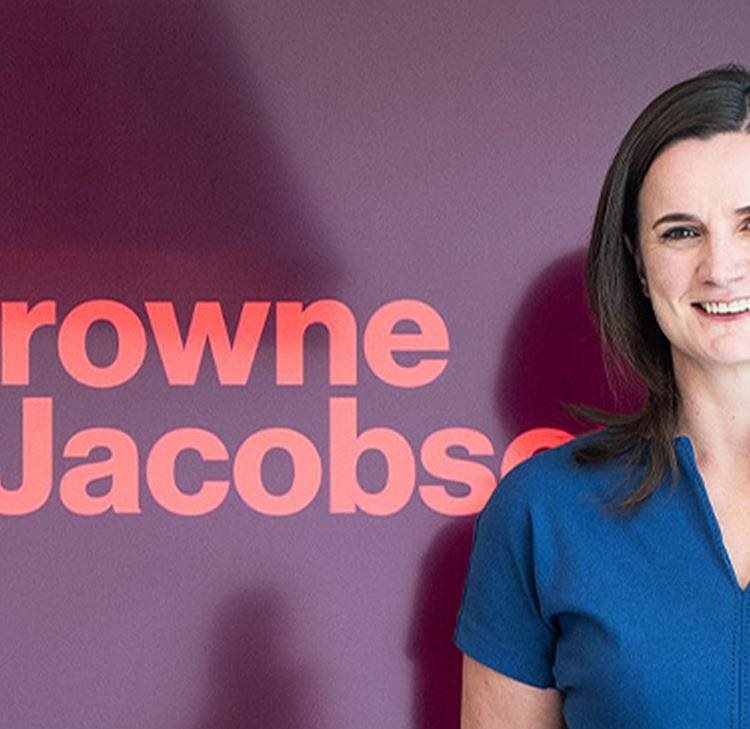Corporate Insolvency and Governance Act 2020: update
When CIGA came into force over a year ago it turned the insolvency world on its head. It introduced never-before-seen measures to help companies deal with the immediate impact of the coronavirus pandemic and to provide new corporate restructuring tools to try to help companies survive and prosper.
When CIGA came into force over a year ago it turned the insolvency world on its head. It introduced never-before-seen measures to help companies deal with the immediate impact of the coronavirus pandemic and to provide new corporate restructuring tools to try to help companies survive and prosper.
Those measures include a temporary restriction on statutory demands and winding-up petitions as well as a temporary suspension of liability for wrongful trading.
The prohibition on statutory demands and restrictions on winding-up petitions have been repeatedly extended since they came into effect on 1 March 2020. Whilst not a complete barrier to action, CIGA imposed additional requirements to justify and limit the use of winding-up petitions.
The measures were necessary, and the success of that approach is borne out in the insolvency statistics which have consistently shown low levels of corporate insolvencies over the last 15 months. Questions remain over how businesses will cope without these measures and whether they have simply delayed the inevitable rather than preventing it.
The measures will expire in 3 weeks on 30 June 2021 and it is unclear whether they will be extended again to coincide with the end of the furlough scheme in September 2021.
Whatever happens, directors should use the time available now (whether its 3 weeks or 3 months) to make a plan, based on up to date cash-flows and forecasts and, if necessary, professional advice, for dealing with or, at least, mitigating the risks that lie ahead. That might include how to service current, deferred or contingent liabilities (both new and old) and the proper approach to decision-making to comply with a director’s duties and avoid any personal liability attaching to the directors.
Related expertise
You may be interested in...
Legal Update
How is the retail sector utilising Restructuring Plans: Is the criticism abating?
Press Release - Firm news
Browne Jacobson expands international disputes offering with new Head of Commercial Dispute Resolution in London
Legal Update
Insolvencies and claims under Third Parties (Rights Against Insurers) Act 2010
Legal Update - Economic Crime and Corporate Transparency Act
Is Companies House turning the tide against facilitators of fraud?
Press Release
Browne Jacobson strengthens Irish Corporate team with appointment of Principal Associate James Byrne
Legal Update
A first of many? PFI company seeks Restructuring Plan
Legal Update
The impact of insolvencies on construction in 2024
Press Release
Three strong restructuring and insolvency team join Browne Jacobson
Press Release
Law firm advises on MBO of insolvency and restructuring firm Bridgewood backed by DSW Capital
Legal Update
Insolvency practitioners and trustee immunity
Legal Update
J A Ball Limited (in Administration) v St Philips Homes (Courthaulds) Ltd
Legal Update
Trigger happy when directors’ duties are the target?
In a judgment handed down yesterday the Supreme Court has affirmed that a so called “creditor duty” exists for directors such that in some circumstances company directors are required to act in accordance with, or to consider the interests of creditors. Those circumstances potentially arise when a company is insolvent or where there is a “probability” of an insolvency. We explore below the “trigger” for such a test to apply and its implications.
Opinion
Sequana: Supreme clarification on the duty owed to creditors
The Supreme Court has unanimously dismissed the BTI v Sequana appeal and reviewed the existence, content and engagement of the so-called ‘creditor duty’; being the point at which the interest of creditors is said to intrude upon the decision-making of directors of companies in financial distress.
Published Article
Sole director decisions: Another perspective
On-Demand
Private Sector Development Club - 18 January 2022
We welcome you back after the festive break to our first Private Sector Development Club of the year. Join us on-demand for four high level presentations with a chance for you to ask questions to our experts.
Opinion
Insolvency applicants: getting the basics right
A number of interesting developments have emerged from what was quite a run-of-the-mill insolvency application brought by a litigation funder assignee.
Opinion
Corporate Insolvency and Governance Act 2020: update
When CIGA came into force over a year ago it turned the insolvency world on its head. It introduced never-before-seen measures to help companies deal with the immediate impact of the coronavirus pandemic and to provide new corporate restructuring tools to try to help companies survive and prosper.
Published Article
Insurance developments: Solvency II reform and value reporting rules
When the EU and UK introduced more rigorous financial regulation in the 2010s, they addressed potential risk at banks before turning to insurance. Rule changes following Brexit may occur in the opposite order as the UK is mulling ways to relax the prudential framework for insurers established by the Solvency II Directive.
Opinion
Moratoriums
The new Part A1 moratorium was introduced partly in response to the Covid-19 pandemic and its impact on businesses. The moratorium is not intended to be used to simply delay the inevitable insolvency of a company, but rather to allow breathing space for that company to restructure and/or achieve an effective rescue.
Legal Update
Overhaul of UK audit regime
The Government is consulting on plans to modernise the country’s audit and corporate governance regime, building on the recommendations of three recent independent reviews with the goal of restoring business confidence by implementing reforms to improve the quality of corporate reporting.
Opinion
Covid-19 insolvency measures extension
From 26 March 2021 the Corporate Insolvency and Governance Act 2020 (Coronavirus) (Extension of the Relevant Period) Regulations 2021 will come into force with the effect of extending several of the temporary measures brought in by the Corporate Insolvency and Governance Act 2020 (CIGA).
Legal Update
Steps to take when responding to an administration
This note provides a general overview of administration and what options are open to local authorities.
Legal Update
Engaging as a creditor in insolvency processes
A creditor who has a genuine interest in the outcome of a case would be wise to find the time to register on the insolvency practitioners online portal.
Legal Update
Buoyancy check: are your floating assets sinking?
From 1 December 2020, HMRC will once again benefit from preferred creditor status in the event of an insolvency. This means that, regardless of the date of any pre-existing security, HMRC will rank ahead of the general body of unsecured creditors and floating charge holders in respect of certain taxes (including VAT, PAYE and employee’s NIC but not Corporation Tax).
Opinion
Directors who fail to prepare, should prepare to fail
Two recent judgments demonstrate the risk that directors (of insolvent companies) face of being personally liable if appropriate records and procedures are not followed and if it cannot be shown that certain payments were in the interests of the company.
Legal Update
Corporate Insolvency and Governance Bill: An overview of the significant reforms to the UK’s restructuring and insolvency regime
On 20 May 2020, the UK government published the long-awaited Corporate Insolvency and Governance Bill (the Bill) to implement the temporary measures announced by the Business Secretary on 28 March 2020 and the long planned measures contained in the government’s consultation in August 2018.
Legal Update
Getting through lockdown – your real estate questions answered
Find out more about the confusion around the Government’s support measures for business tenants and what to do if you have a break right during lock down.
Legal Update
New insolvency laws during the COVID-19 crisis
On Saturday, 28 March 2020, Business Secretary, Alok Sharma MP, announced changes to the insolvency regime as part of the governments overriding objective.













